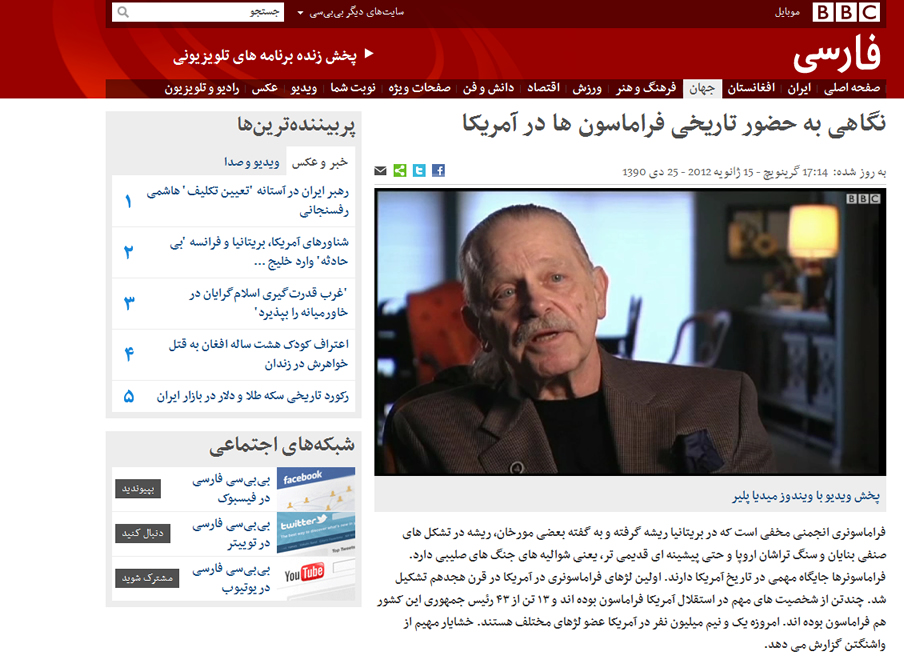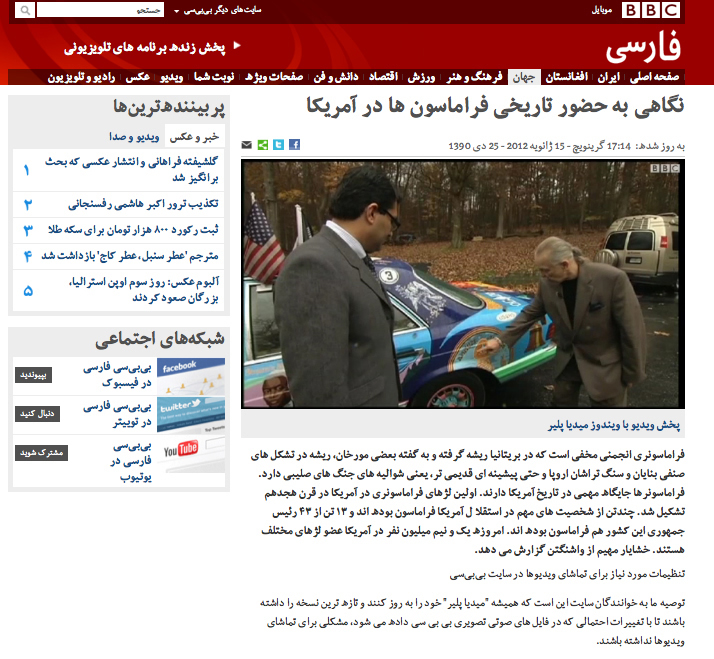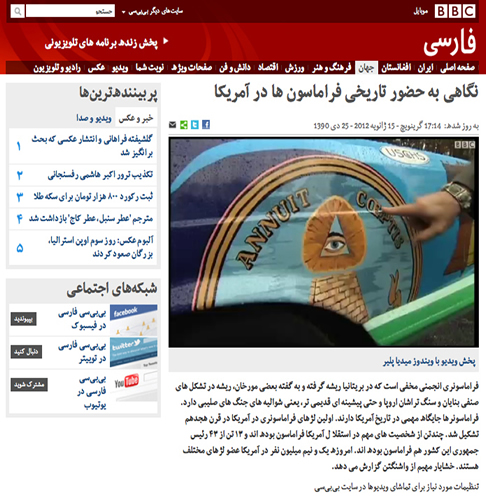Dr. Bob Hieronimus interviewed by BBC Persian on the history of Freemasons in the United States and their symbols.
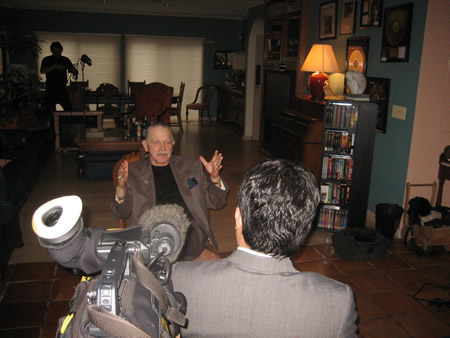
Bob was excited at the opportunity to talk on camera about one of his favorite subjects: the republic formed by the League of the Iroquois as early as 1142 A.D. He hopes that a portion of what he said on the Founding Fathers of America being tutored by the Iroquois League Haudenosaunee makes it into the final on-air production. You can see him in these photos explaining the symbols of the Iroquois League painted on his "We The People" Biodiesel Artcar.

BBC Persian is the Persian language radio station and TV operated by the BBC, which conveys the latest political, social, economical and sport news relevant to Iran, Afghanistan, and Tajikistan, and the world. Its headquarters are in London, United Kingdom.
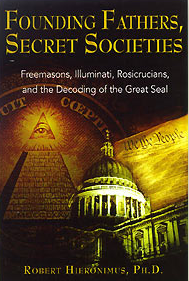 Here are some excerpts from one of Dr. Hieronimus’s books Founding Fathers, Secret Societies discussing the League of the Iroquois. (p. 20-21)
Here are some excerpts from one of Dr. Hieronimus’s books Founding Fathers, Secret Societies discussing the League of the Iroquois. (p. 20-21)
“One of the most common mistakes made by critics of the Iroquois influence theory is in overstating its tenets, an emotional tactic used by those who have not studied the literature. There is no question that the Iroquois instructed the American revolutionary leaders on the virtues of unity, and there is ample evidence that they also served as examples of democracy to them. Acknowledging the role of the Iroquois does not in any way depreciate the roles of the classical Greek or English influences on the fledgling American government. The question is not whether they had influence but how much influence they had.
“As Grinde and Johansen assert:
In essence, American democracy is a synthesis of Native American and European political theories; there is an abundance of inferential and direct evidence to support the thesis that American government was influenced by Native American political concepts. The founders did not copy the British Constitution, the Magna Carta, the ancients, or the Iroquois Confederacy, but they did examine and use European and American Indian ideas in the creation of our American government. This was a time when the character of Native American societies was a subject of inquiry not only by the founders of the United States but also by important European philosophers, whose concepts of “natural man” and “natural law” were, in turn, exported to America. Our political traditions are not the product of any single heritage, but of a unique amalgam that is incomplete without an awareness of our American Indian roots.25
Quotes from America’s Founding Fathers on the Iroquoian Influence:
(p. 17)
Thomas Jefferson:
“[Native American societies] enjoy, in their general mass an infinitely greater degree of happiness than those who live under European government.”
Jefferson to Edward Carrington, Jan. 16, 1787
(p. 18)
Benjamin Franklin:
“Having frequent Occasions to hold public Councils, they have acquired great Order and Decency in conducting them. The old Men sit in the foremost ranks, the Warriors in the next, and the Women and Children in the hindmost. The business of the Women is to take exact notice of what passes, imprint it in their memories, for they have no Writing, and communicate it to their children. They are the Records of the Council, and they preserve the Stipulations in Treaties a hundred Years back, which when we compare with our Writings we always find exact. He that would speak rises. The rest observe a profound Silence. When he has finished and sits down, they leave him for five or six Minutes to recollect, that if he has omitted anything . . . he may rise again and deliver it. . . . How different this is from the Conduct of a polite British House of Commons, where scarce a Day passes without some Confusion that makes the Speaker hoarse in calling to order.” 21
(p. 19)
John Adams, in the preface to his Defence of the Constitution:
“Great philosophers and politicians of the age are attempting to set up governments of . . . modern Indians.”22
James Madison believed that Adams’s Defence of the Constitution “would be praised and become a powerful engine in forming the public Opinion.” 24
